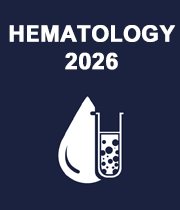Clinical Hematology
Blood problems can obstruct various biological functions and lead to a variety of difficulties. Hematology, or the research and treatment of blood problems, is a specialisation of internal medicine because of this. Hematology is the branch of medicine that studies the causes, prognosis, treatment, and prevention of blood-related disorders. It entails treating disorders that impact blood production and its constituents, such as blood cells, haemoglobin, blood proteins, bone marrow, platelets, blood arteries, spleen, and the coagulation process. Clinical haematology is a field of medicine that focuses on the diagnosis and treatment of blood diseases and malignancies. Clinical haematology is responsible for administering chemotherapy to patients with blood cancers like leukaemia and lymphoma. It is the study of blood and bone marrow illnesses, as well as how to treat them. Clinical haematologists diagnose and treat patients with these conditions.
- Acute Leukemia
- All types of coagulation and thrombotic disorders
- Chronic Leukemia
- Haemoglobin and platelet disorders
- Lymphoma – Hodgkin / Non Hodgkin
- Myeloproliferative Neoplasms
- Plasma Cell disorders
- Thalassemia and other haemoglobinopathies



Title : Acute intermittent porphyria: A neurological dilemma obscured by ubiquitous fgastrointestinal presentation
Mayank Anand Singh, Mimer Medical College, India
Title : Comprehensive symptom management and supportive nursing care in a preterm toddler undergoing HSCT for pyruvate kinase deficiency
Tran Thi Dung, Vinmec International Hospital, Vietnam